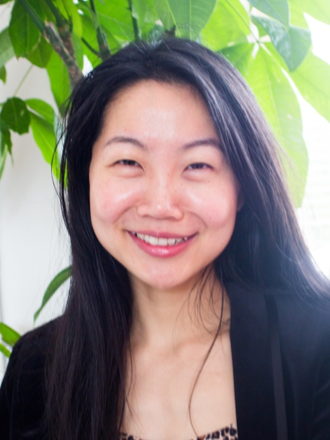Yingjie Yuan | Faces of FEB
The Faculty of Economics and Business is a faculty with a great diversity of people who all have an impact, big or small, on science and society. But who are these people? Within ‘Faces of FEB’ we connect with different students, staff members and researchers of the faculty and give a little peek into their world. This week: Yingjie Yuan, assistant professor of Human Resource Management and Organizational Behavior at FEB.

1. Can you tell us a little bit about yourself?
I am currently an assistant professor of Human Resource Management and Organizational Behavior at FEB, and coordinator of the Master Internship Project for HRM master students.
2. It’s diversity month at FEB. What does diversity mean to you?
Diversity is everywhere in my life and work. I work with people of different gender, color, and backgrounds in my research and teaching. My family and friends are multicultural and bilingual (or even multilingual). Respect and equal opportunity are the most important things in a diverse environment. It’s encouraging to see our effort and progress on diversity and inclusiveness at FEB.
3. How does diversity play a role in your research?
My research is about team composition and team information processing. Investigating how organizations can best leverage diverse teams in terms of demographics (e.g., age, gender, ethnicity, education backgrounds), knowledge, and skills for effectiveness and wellbeing is a crucial topic. For instance, research has shown that successful teams motivate people with diverse backgrounds to interact with each other, to exchange their thoughts and ideas, and to collectively work on team problems.
Want to know more about Yingjie's research? Watch this video!
4. You have experiences with implicit association testing. How does this play a role in inclusiveness?
Implicit association tests reveal our subconscious attitudes and beliefs. It shows to what extent we subconsciously associate majority (minority) groups with positive (negative) descriptions, regardless of our conscious choices. Many people find out surprisingly that they hold more or less stereotypical attitudes toward both majorities and minorities. For example, I might still subconsciously associate Asian students with diligence or submissiveness at school, although this is not always the case in my experience. Such subconscious attitudes can dominate our decisions under circumstances of stress and burnout. But being aware of such subconscious preferences prevents their activation and encourages inclusiveness.
5. Could you share your best practices for maintaining a safe and inclusive space (in work and teaching) with us?
One way to alter the implicit associations (or stereotypes) is via contact and exposure - creating more contact between different social groups and providing people with more diverse information and opinions. Another practice I found helpful is to create a safe and encouraging environment. That means to get students to understand the benefits of diversity and inclusion on the one hand. For example, diversity triggers creativity and innovation. On the other hand, it is important to respect people’s decisions and not force them to include (or exclude).
| Last modified: | 14 October 2021 3.13 p.m. |
